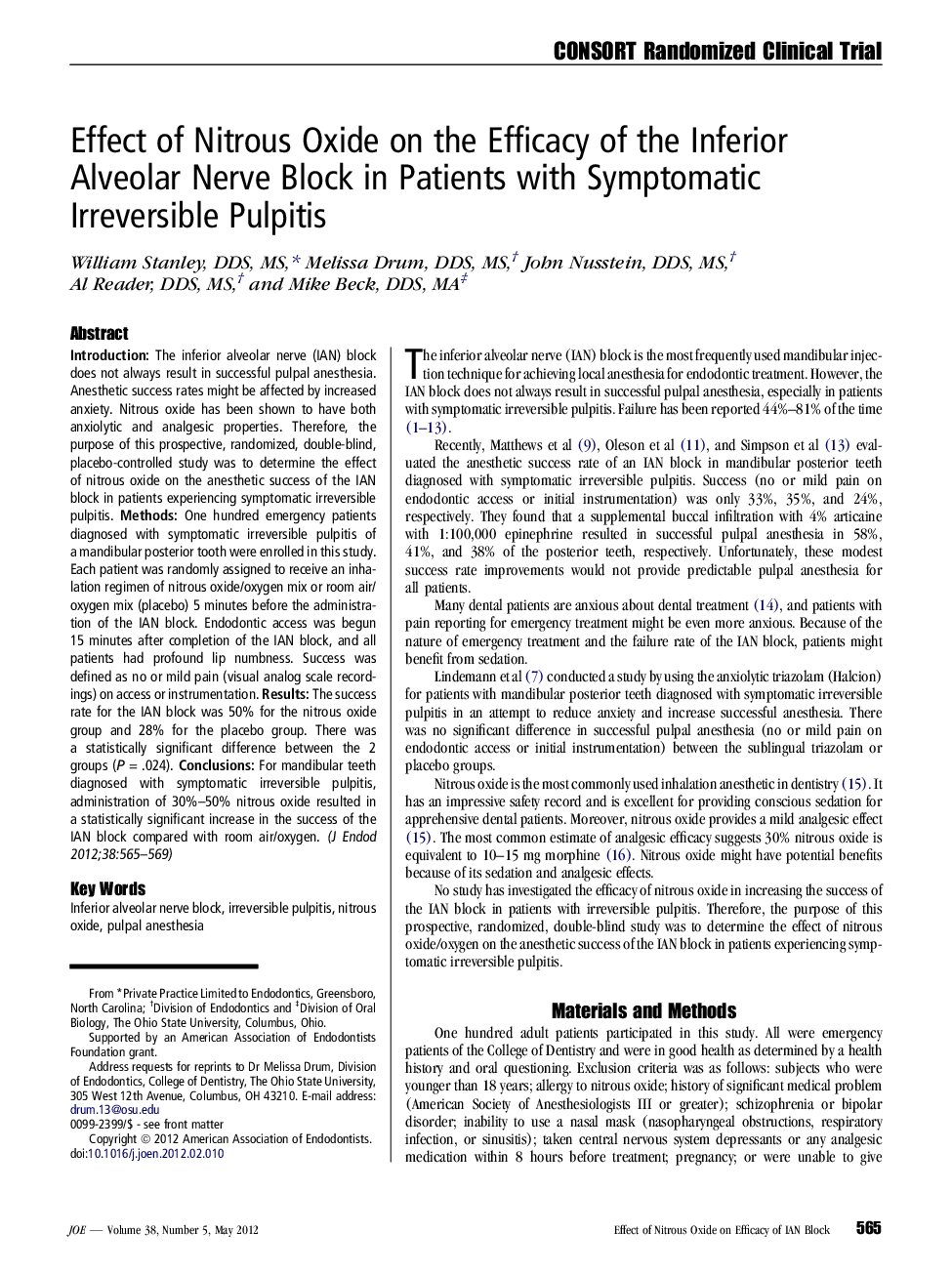| Article ID | Journal | Published Year | Pages | File Type |
|---|---|---|---|---|
| 3147366 | Journal of Endodontics | 2012 | 5 Pages |
IntroductionThe inferior alveolar nerve (IAN) block does not always result in successful pulpal anesthesia. Anesthetic success rates might be affected by increased anxiety. Nitrous oxide has been shown to have both anxiolytic and analgesic properties. Therefore, the purpose of this prospective, randomized, double-blind, placebo-controlled study was to determine the effect of nitrous oxide on the anesthetic success of the IAN block in patients experiencing symptomatic irreversible pulpitis.MethodsOne hundred emergency patients diagnosed with symptomatic irreversible pulpitis of a mandibular posterior tooth were enrolled in this study. Each patient was randomly assigned to receive an inhalation regimen of nitrous oxide/oxygen mix or room air/oxygen mix (placebo) 5 minutes before the administration of the IAN block. Endodontic access was begun 15 minutes after completion of the IAN block, and all patients had profound lip numbness. Success was defined as no or mild pain (visual analog scale recordings) on access or instrumentation.ResultsThe success rate for the IAN block was 50% for the nitrous oxide group and 28% for the placebo group. There was a statistically significant difference between the 2 groups (P = .024).ConclusionsFor mandibular teeth diagnosed with symptomatic irreversible pulpitis, administration of 30%–50% nitrous oxide resulted in a statistically significant increase in the success of the IAN block compared with room air/oxygen.
